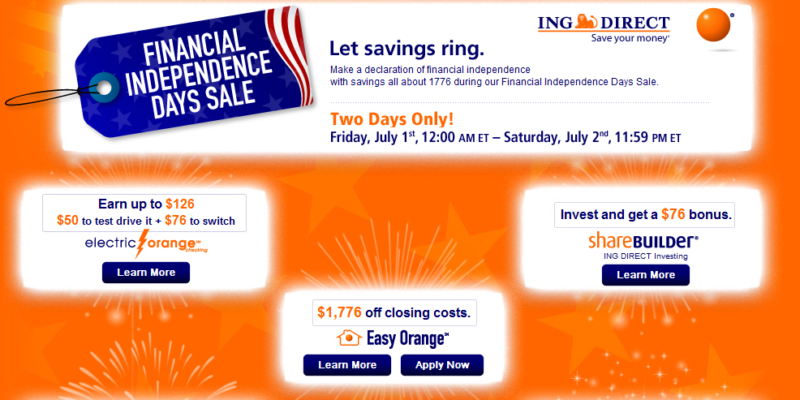What would your future-you have to say to you?
The no-pants guide to spending, saving, and thriving in the real world.
What would your future-you have to say to you?

If you want to make money, help someone get healthy, wealthy or laid.
This section was quick.
Seriously, those three topics have been making people rich since the invention of rich. Knowing that isn’t enough. If you want to make some money in the health niche, are you going to help people lose weight, add muscle, relieve stress, or reduce the symptoms of some unpleasant medical condition? Those are called “sub-niches”. (Side question: Viagra is a sub-niche of which topic?)
Still not enough.
If you’re going to offer a product to help lose weight, does it revolve around diet, exercise, or both? For medical conditions, is it a way to soothe eczema, instructions for a diabetic diet, a cure for boils, or help with acne? Those are micro-niches.
That’s where you want to be. The “make money” niche is far too broad for anyone to effectively compete. The “make money online” sub-niche is still crazy. When you get to the “make money buying and selling websites” micro-niche, you’re in a territory that leaves room for competition, without costing thousands of dollars to get involved.
Remember that: The more narrowly you define your niche market, the easier it is to compete. You can take that too far. The “lose weight by eating nothing but onions, alfalfa, and imitation caramel sauce” micro-niche is probably too narrowly defined to have a market worth pursuing. You need a micro-niche with buyers, preferably a lot of them.
Now the hard part.
How do you find a niche with a lot of potential customers? Big companies pay millions of dollars every year to do that kind of market research.
Naturally, I recommend you spend millions of dollars on market research.
No?
Here’s the part where I make this entire series worth every penny you’ve paid. Times 10.
Steal the research.
My favorite source of niche market research to steal is http://www.dummies.com/. Click the link and notice all of the wonderful niches at the top of the page. Jon Wiley & Sons, Inc. spends millions of dollars to know what topics will be good sellers. They’ve been doing this a long time. Trust their work.

You don’t have to concentrate on the topics I’ve helpfully highlighted, but they will make it easier for you. Other niches can be profitable, too.
Golf is a great example. Golfers spend money to play the game. You don’t become a golfer without having some discretionary money to spend on it. I’d recommend against consumer electronics. There is a lot of competition for anything popular, and most of that is available for free. If you choose to promote some high-end gear using your Amazon affiliate link, you’re still only looking at a 3% commission.
I like to stick to topics that people “need” an answer for, and can find that answer in ebook form, since I will be promoting a specific product.
With that in mind, pick a topic, then click one of the links to the actual titles for sale. The “best selling titles” links are a gold mine. You can jump straight to the dummies store, if you’d like.
Of the topics above, here’s how I would narrow it down:
1. Business and Careers. The bestsellers here are Quickbooks and home buying. I’m not interested in either topic, so I’ll go into “More titles”. Here, the “urgent” niches look like job hunting and dealing with horrible coworkers. I’m also going to throw “writing copy” into the list because it’s something I have a hard time with.

2. Health and Fitness. My first thought was to do a site on diabetic cooking, but the cooking niche is too competitive. Childhood obesity, detox diets and back pain remedies strike me as worth pursuing. I’m leaning towards back pain, because I have a bad back. When you’ve thrown your back out, you’ve got nothing to do but lie on the couch and look for ways to make the pain stop. That’s urgency.
3. Personal Finance. The topics that look like good bets are foreclosures and bankruptcies. These are topics that can cost thousands of dollars if you get them wrong. I hate to promote a bankruptcy, but some people are out of choices. Foreclosure defense seems like a good choice. Losing your home comes with a sense of urgency, and helping people stay in their home makes me feel good.
4. Relationships and Family. Of these topics, divorce is probably a good seller. Dating advice definitely is. I’m not going to detail either one of those niches here. Divorce is depressing and sex, while fun, isn’t a topic I’m going to get into here. I try to be family friendly, most of the time. Weddings are great topic. Brides are planning to spend money and there’s no shortage of resources to promote.
So, the niches I’ve chosen are:
I won’t be building 9 niche sites in this series. From here, I’m going to explore effective keywords/search terms and good products to support. There’s no guarantee I’ll find a good product with an affiliate program for a niche I’ve chosen that has keywords that are both highly searched and low competition, so I’m giving myself alternatives.
For those of you following along at home, take some time to find 5-10 niches you’d be willing to promote.
The important things to consider are:
1. Does it make me feel dirty to promote it?
2. Will there be customers willing to spend money on it?
3. Will those customers have an urgent need to solve a problem?
I’ve built sites that ignore #3, and they don’t perform nearly as well as those that consider it. When I do niche sites, I promote a specific product. It’s pure affiliate marketing, so customers willing to spend money are necessarily my target audience.
First, my disclaimer: I’m not destitute.
However, I’m trying to spend Christmas acting like I am a pauper.
Why, with small children and beautiful-and-more-than-deserving wife, would I want to deprive my family of a bountiful holiday?
Before we get into the reasons for being a horrible grinch bent on depriving my children of their god-given right to rampant consumerism, let’s look at the Philosophy of Destitution.
The primary reason to pull back and tone it down is basic frugality. Excessive anything is not frugal. I am training my children–and for that matter, my wife and my self–in the finer arts of personal responsibility and frugality. Accumulating debt for a fleeting holiday is insane. If we can’t afford to buy it, we certainly can’t afford to give it. Anything else would be setting a bad example and children learn best by example.
Another piece of the Philosophy of Destitution(when I read this word, I hear a deep, booming voice in my head, like a 30s radio superhero voiceover) is “green”. I consider myself a conservationalist rather than an environmentalist, so don’t read too much into that color. I try to be responsible, instead of destructive and I try to avoid being wasteful. Toys that won’t be played with are wasteful. A garbage can full of packaging for those same toys costs money. It is much cheaper to avoid the landfill here.
Back to “Why”. Why would I be willing to deprive my family?
From a question posted here:
Thank you for all your help in my previous question. After meeting with the agent, I’ve decided on term life insurance over whole life. But I am still not sure how much term life I should buy. Should I buy as much as I could afford or some specific amount?
My answer(edited a bit):
That question is far too open-ended.
Are you married? If yes, are you the primary breadwinner? Do you have children? Investments? Savings?
Here’s my situation:
I am married, with three children. I have the primary income.
We have a mortgage, a car payment, and some consumer debt.
I added up all of the debt as my base level of term life insurance. My family will not be burdened with debt if anything happens to me.
To the base level, I added 5 years of my net income. Without changing a thing, my family will be supported exactly as is for 5 years if I die. They won’t, however, have the same level of expenses, due to the base level of insurance paying off all debt. All of my living expenses also evaporate. For example, there will be one car sold, one less mouth to feed and body to dress, etc.
I figure with the lower expenses and no debt, my insurance will support my family for 10 to 15 years if my wife manages the money right. If she continues to work, it should last almost forever.
How do you figure the “right” amount of life insurance?[ad name=”inlineright”]


I just got an email from INGDirect. To celebrate Independence Day, they are having a sweet, sweet sale.
You can:
Take advantage of all of that and you’ll get $2054 in cash or discounts.
Seriously, this deal rocks. If you don’t have an INGDirect account, get one. There are no overdraft fees and no monthly fees.
The sale ends tomorrow at midnight, so hurry.
My financial life right now is boooring.
And that’s a good thing.
When I started this site I was $90,000 in debt, and considering bankruptcy. I’d just started on the Dave Ramsey plan and was looking for every possible way to scrape up any extra money I could.
Now, the debt is nearly gone.

Our credit card is almost paid off every month. There’s occasionally some overlap between our auto-payment and our charges. And sometimes the budgeted auto-payment doesn’t match the reality of our spending and I don’t notice for a week or two. Except for the end of last year, but that’s a post for another day.
The short version is: We’re doing well, and we’re nearing the end of our financial problems.
Our scheduled mortgage over-payments will have it completely paid off in October. Then we are debt-free and can hopefully manage to live the rest of our lives without paying interest on money that isn’t earning us more than we are paying. For example, I’m willing to take out a mortgage to buy another rental property, but I’m going to wait to do that until our current mortgage is paid and we have a substantial down payment ready.
No debt.
I’m not kidding when I say it’s been a long 6 years of fighting our debt. Counting a car loan we got and paid early, we’ve paid more than $110,000 of debt in six years.
I’ve run side businesses, aggressively negotiated raises, and left companies(voluntarily and otherwise) for better pay & benefits.
I’ve watched friends and family take vacations around the world.
I’ve turned my kids down for so many things that I would love to buy them, but couldn’t because being financially secure is a much higher priority than spoiling children. Try explaining that to a 6 year old.
And now, the debt-ridden part of our financial journey is almost over. Finally.
So what’s next?
I have no idea. I’d like to travel more. Linda and the girls want us to move to a hobby farm and get horses. We want more rental properties.
Whatever “next” is, it will be done from a position of strength that won’t destroy our financial world or put out futures at risk.